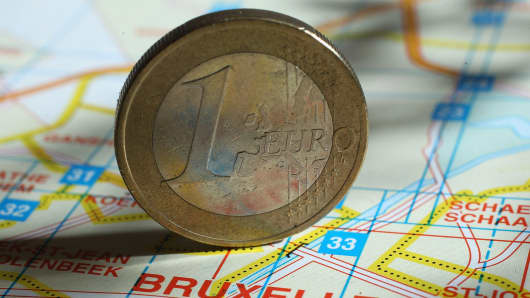The euro zone PMI remained well below the 50 mark dividing growth from contraction, however, and dipped from the previous month.
Early gains were capped as investors weighed the chances the European Central Banks will cut interest rates this week. And as the currency bloc's economy continues to falter despite Tuesday's data, there is the possibility the ECB will ease policy in the coming months if not this week.
"Even if the ECB does not surprise already dovish expectations, we still have the risk of further deterioration in data bringing forward bets of further cuts as soon as April." said Valentin Marinov, head of European G10 FX strategy at Citi in London.
The euro has also been hurt by political concerns in Italy. Last week's election left no group with a working majority in parliament and that meant Italy could be inching closer towards another election within months.
Marinov said investor uncertainty about Italy could escalate if there is no government in place before the end of the month, adding he expected the euro to target $1.28.
Some US$4.01 billion in euros changed hands on the Reuters Dealing platform.
Yen Rises
The yen was up against the dollar after confirmation hearings of the government's nominees for two Bank of Japan deputy governor posts, which had been widely expected by the market.
Analysts said the dollar's early drop against the yen was mostly a reflection of market positioning as traders were probably long dollar/yen going into Tuesday's confirmation hearings.
The Japanese government has signaled it wants the BOJ to pursue aggressive monetary easing to stimulate the economy, a stance that has weighed heavily on the yen since November. But investors are now waiting for actual policy action after such aggressive easing rhetoric for the dollar.
(Read More: Abe to Americans: 'Japan Is Back')
The dollar was down 0.2 percent at 93.29 yen, falling for a second straight day. Some strategists, however, said the dollar's uptrend against the yen remained intact and dips would provide a good chance to buy the pair.
"Overall, we continue to view near-term pull-backs into the 91.80 yen area as providing buying opportunities," analysts at Morgan Stanley said in a note. Some US$2.2 billion in yen changed hands on the Reuters trading platform.




